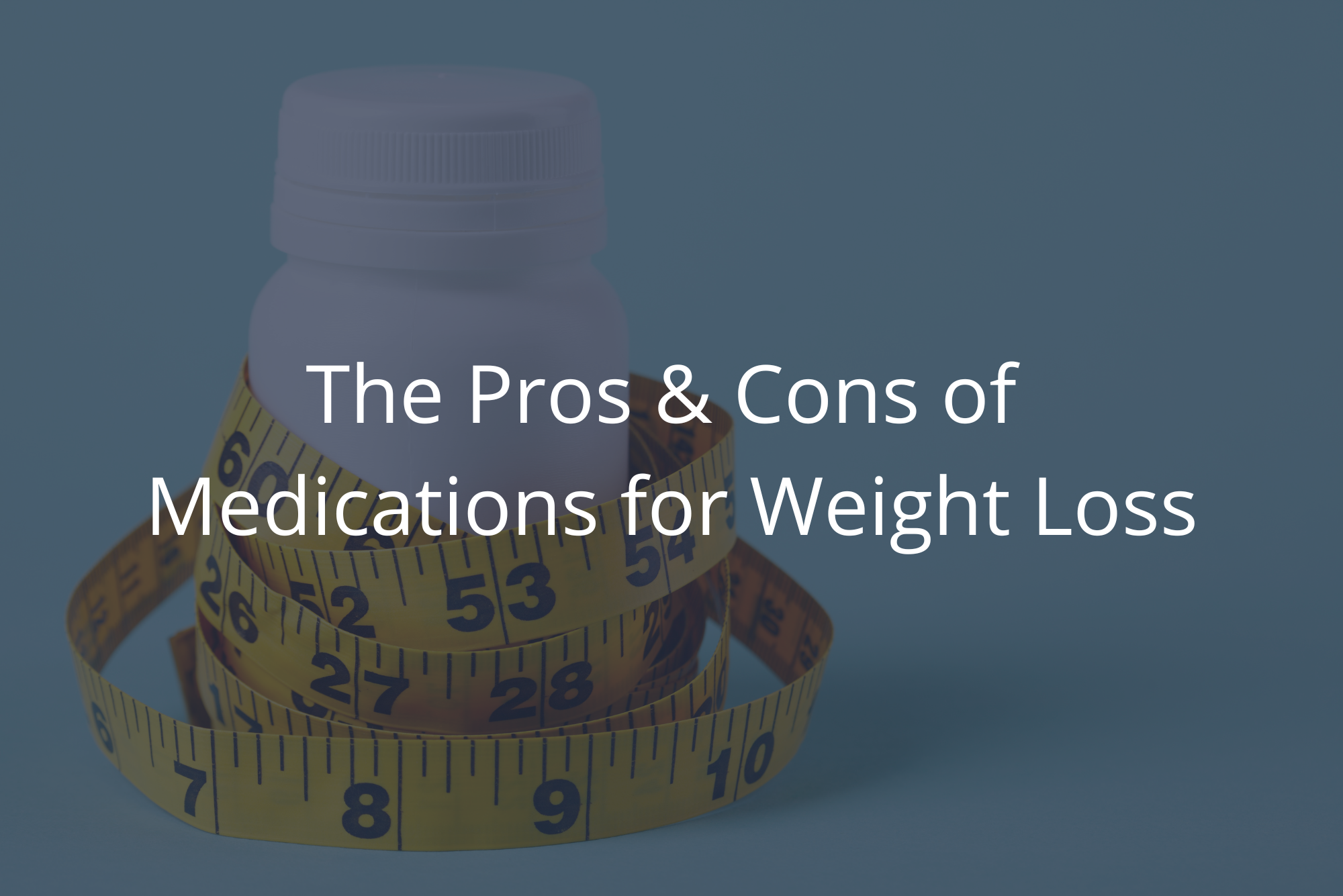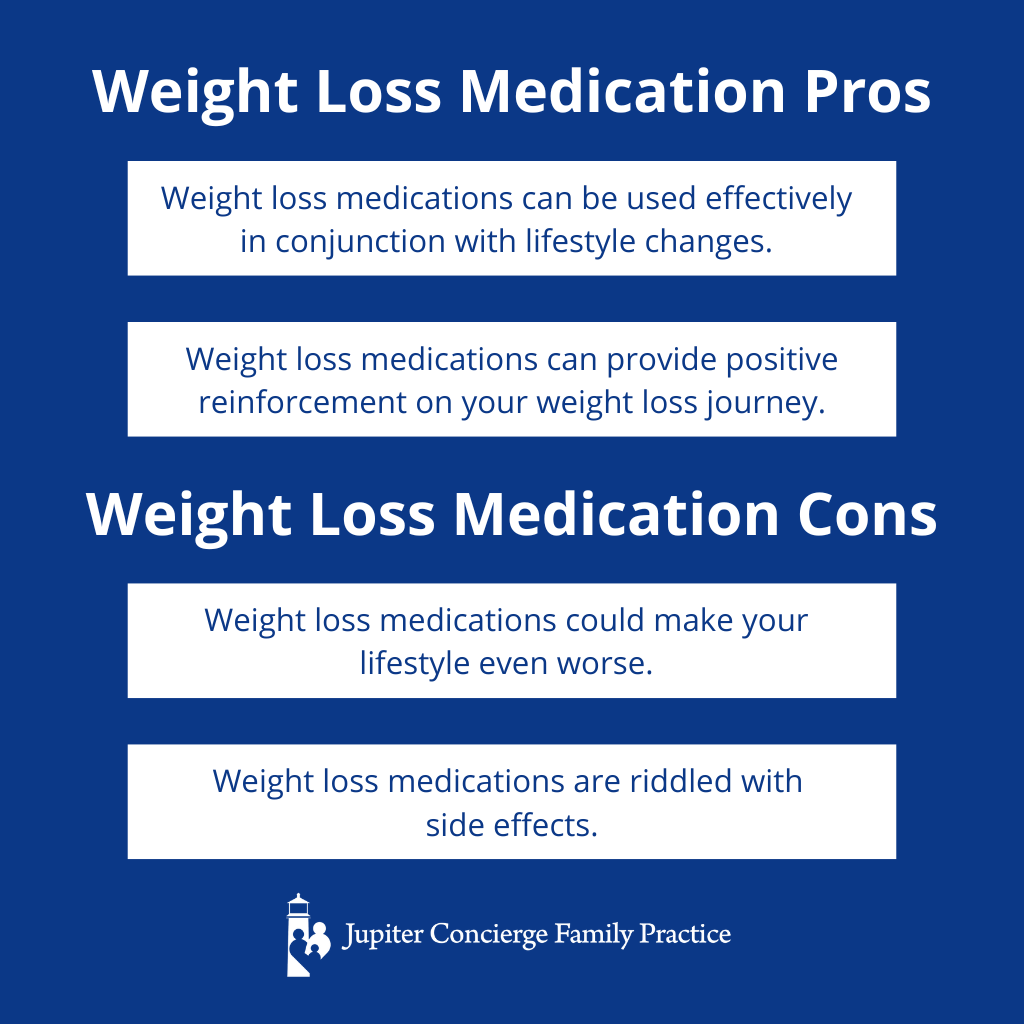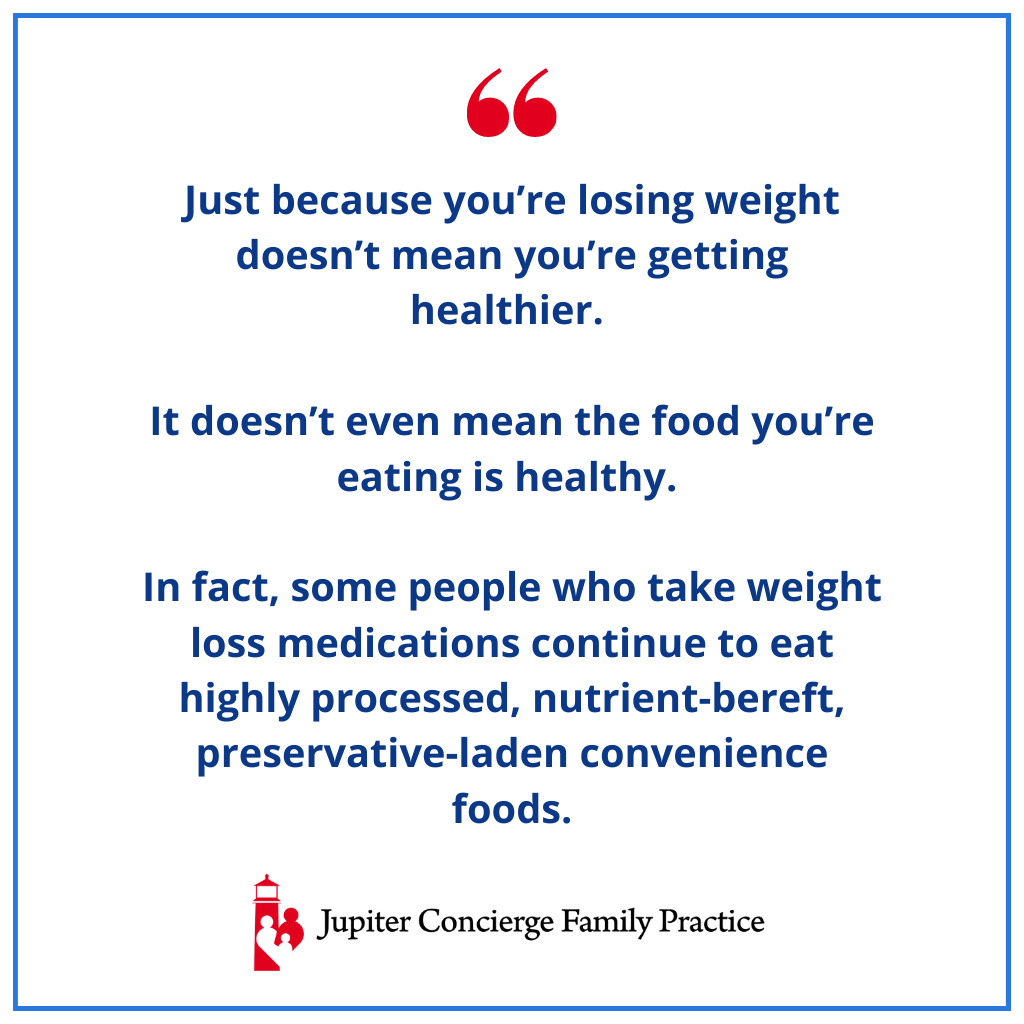
A staggering 42% of U.S. adults are obese, according to the Centers for Disease Control (CDC). Obesity exacts a toll from the body, leading to health problems that burden every system we have: circulatory, endocrine, muscular, skeletal, excretory, nervous, lymphatic, respiratory, digestive, urinary, and reproductive.
As a result, weight loss medications are extremely popular — the most well-known are Qsymia and Phentermine, which work by suppressing the appetite. More recently, a new class of weight-loss medications, peptides, have been introduced, the most popular being semaglutide (Ozempic and Wegovy).
Patients often ask me to prescribe these medications to accelerate their weight loss. But there are many weight loss medication pros and cons, some of which may not be obvious at first blush. It’s important to consider all aspects of a medication before starting it, so let’s dive in.
Weight Loss Medication Pros
Pro #1 — Weight loss medications can be used effectively in conjunction with lifestyle changes.
There isn’t really a question about whether weight loss medications are effective at helping people lose weight. They are.
The question is more about whether they deliver the desired result at a reasonable, sustainable cost to the body.
When used in conjunction with lifestyle changes, weight loss medications can be a boon. And although everyone knows diet and exercise are crucial to healthy weight loss, we often forget the basics.
So, let’s review quickly. For diet, you need to look beyond calories and consider nutrient intake. Other considerations include maintaining a high protein/low carbohydrate ratio, as well as metabolizing fat by practicing intermittent fasting.
To help you create a healthy, targeted plan, I recommend consulting a nutritionist.
Exercise, for its part, can be tricky to implement. How much is too much? What types make sense for you? Ask your doctor to help you develop an individual plan, which will also help prevent exercise-related injuries.
Pro #2 — Weight loss medications can provide positive reinforcement on your weight loss journey.
As I mentioned, exercise can be difficult to implement, as can sustainable dietary changes. For people who thrive on positive reinforcement, weight loss medications may be useful to jumpstart the journey, since seeing tangible results more quickly can be motivating.
In such cases, it’s best to limit the use of the medication.
Let’s say the medicine curbs your appetite, which leads you to develop healthy eating habits and routines. When you establish that stability, you can stop taking the medication. Your risk of gaining the weight back is lowered, and you’re not dependent upon the medication for further weight loss.
Weight Loss Medication Cons
Con #1 — Weight loss medications could make your lifestyle even worse.
Just because you’re losing weight doesn’t mean you’re getting healthier. It doesn’t even mean the food you’re eating is healthy. In fact, some people who take weight loss medications continue to eat highly processed, nutrient-bereft, preservative-laden convenience foods.
In such cases, people still aren’t getting the necessary nutrients to support healthy bodily functions. Lack of proper nutrition can lead to a multitude of health problems across a range of bodily systems.
Similarly, many people who take weight loss medications don’t exercise. The benefits of exercise, even outside of weight loss, are too many to list, though they include improved heart health, lower blood pressure, and lower risk of dementia. A weight loss medication does not in any way provide these benefits.
Con #2 — Weight loss medications are riddled with side effects and expenses.
Weight loss medications come with physical consequences of their own. Some side effects include nausea, vomiting, diarrhea, dehydration, kidney or gallbladder issues, diabetic retinopathy in diabetic patients, and hypersensitivity or allergic reactions.
We also need to be aware that taking a relatively new medication which isn’t well-studied comes with unknown risks.
Lastly, if the medication isn’t covered under your health insurance plan (and many times it isn’t), the cost can exceed $1,000 per month.
Weight Loss Medication Pros and Cons: Conclusion
In very specific circumstances, the pros of weight loss medications may outnumber the cons. That said, there are healthier ways to lose weight. The quick-fix approach undercuts healthy lifestyle factors and physical processes needed to enact enduring, satisfying change.

Dr. David Rosenberg
Dr. Rosenberg is a board-certified Family Physician. He received his medical degree from the University of Miami in 1988 and completed his residency in Family Medicine at The Washington Hospital in Washington, Pennsylvania in 1991. After practicing Emergency Medicine at Palm Beach Gardens Medical Center for two years, he started private practice in Jupiter, in 1993. He is an avid baseball fan and Beatles fanatic, since he was 8 years old. He has been married to his wife, Mary, since 1985 and has three grown children.
David completed additional studies at Mercer University, Macon, Georgia and obtained a BS in Chemistry in 1983.
“My interests include tennis, snow skiing, Pilates and self-development.”


